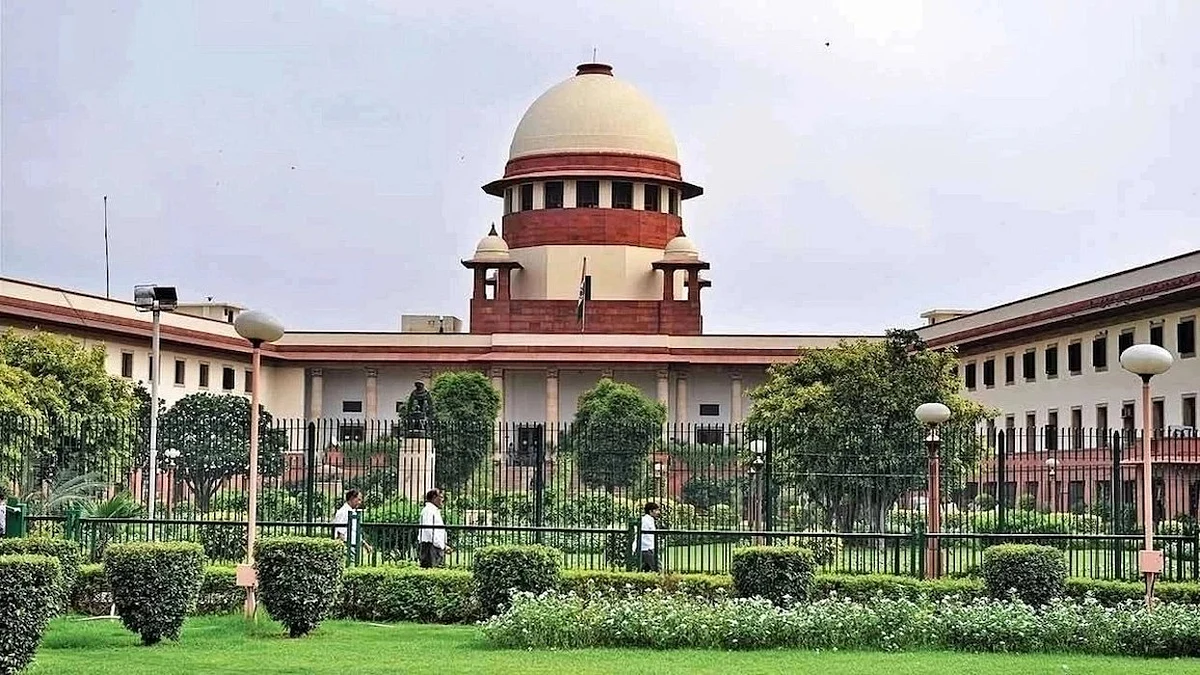Sedition by another name? Deceptive draft bill retains the actual offence
Contrary to the claim of Union home minister Amit Shah, the Bharatiya Nyaya Sanhita Bill does not repeal the offence of sedition but retains it by another name

A Supreme Court bench on Tuesday, 12 September, overruled the attorney general and the solicitor general of India, who argued that Section 124 (A) of the Indian Penal Code has been dropped in the draft Bharatiya Nyaya Sanhita Bill being scrutinised by a parliamentary committee.
The draft legislation, they argued, makes no mention of ‘sedition’ and hence hearing of petitions challenging the law must be deferred, they suggested.
However, Kapil Sibal, appearing for the petitioners, interjected to say that the new bill has a similar provision, which is "far worse". Arvind Datar also agreed and said, “Ssedition exists in the new bill, just that they have given a new label". They maintained that the government seeks to replace sedition with a new offence of “endangering the unity” of the country in Section 150 of the Bharatiya Nyaya Sanhita Bill, which is proposed to replace the Indian Penal Code (IPC).
The draconian section provides for imprisonment for life or imprisonment that can extend up to seven years plus fine for anyone who is found guilty of ‘exciting or attempting to excite secession or armed rebellion or subversive activities, or encourages feelings of separatist activities or endangers sovereignty or unity and integrity of India…’
As many as 11,000 Indians have been charged in 816 sedition cases between 2010 and 2020, with 65 per cent of the cases having been filed after 2014.
As many as 405 of the accused were slapped with sedition cases for criticising politicians and governments, 95 per cent of them having been charged after 2014. Among them, 149 were accused of making 'critical' or 'derogatory' remarks against Prime Minister Narendra Modi and 144 against Uttar Pradesh chief minister Yogi Adityanath.
A majority of the cases were registered in BJP-ruled states.
The cases were registered over expressions ranging from social media posts to holding posters, from raising slogans to personal communications.
In July 2021, then chief justice of India NV Ramana had said, "Is it still necessary to retain this colonial law which the British used to suppress Gandhi, Tilak etc., even after 75 years of independence?... the enormous power of this section can be compared to a carpenter being given a saw to make an item, using it to cut the entire forest instead of a tree.”
Since then, the Union government has successfully stalled the hearing of petitions filed, among others, by former army major-general SG Vombatkere, the Editors' Guild of India, former union minister Arun Shourie, TMC MP Mahua Moitra, journalist Anil Chamadia, the Peoples' Union for Civil Liberties, journalists Patricia Mukhim and Anuradha Bhasin, and the Journalists’ Union of Assam.
The bench, comprising Chief Justice DY Chandrachud, Justice Pardiwala and Justice Manoj Misra, held that it was essential to answer the question of law. The Bharatiya Nyaya Sanhita, as and when it is enacted, will apply to future prosecutions, the justices pointed out, and not to the past cases with retrospective effect.
Moreover, the bench held, it was now necessary to examine the ruling of the five-judge bench in the case of Kedar Nath Singh (1962) when the apex court had acquitted Singh, a communist, but upheld the law of sedition as constitutional. The court’s ruling came with the caveat that sedition must involve incitement to violence. While courts continue to go by this interpretation, the government has extended the ambit of the law and has used it arbitrarily to stifle dissent, mostly during the last nine years.
In colonial times, the state and the government were deemed to be synonymous, argued Kapil Sibal. However, in the 21st century, he added, "disaffection against the government" cannot be taken to be "disaffection against the state".
The bench referred the petitions to the administrative side for placing it before a five-judge or a seven-judge bench for further hearing.
Follow us on: Facebook, Twitter, Google News, Instagram
Join our official telegram channel (@nationalherald) and stay updated with the latest headlines
